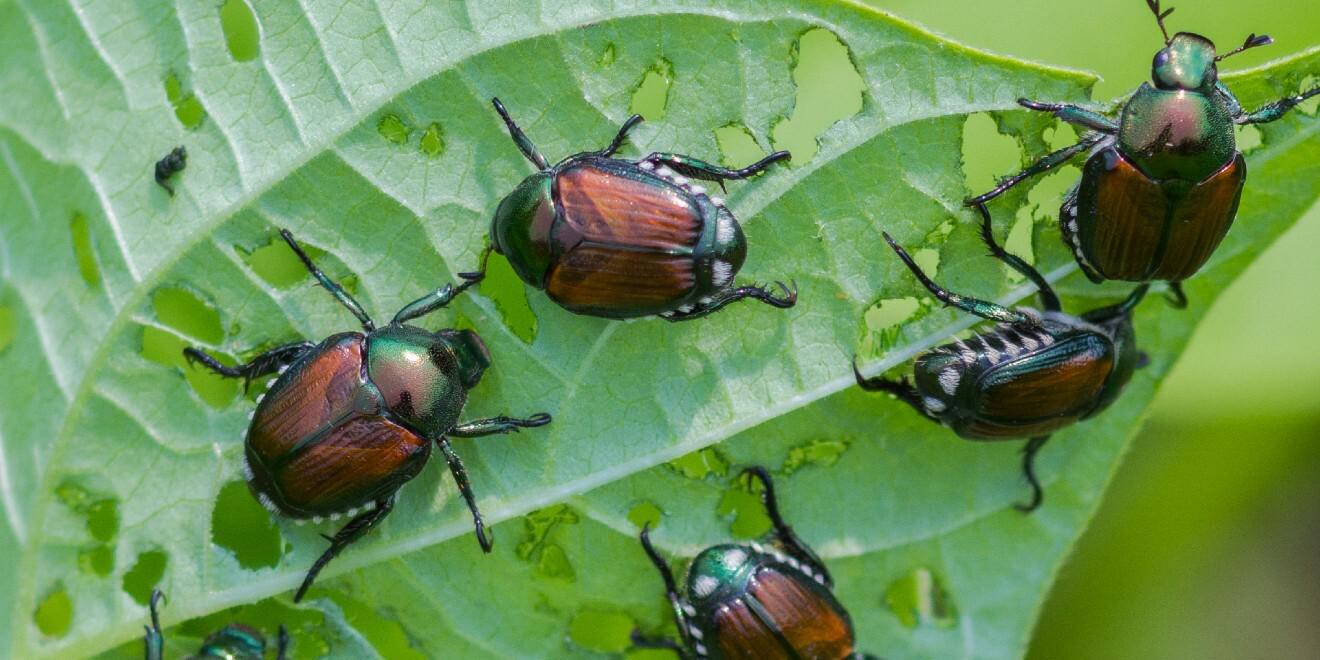Can you get AIDS from mosquitoes? Rutgers University says no.
Posted by Mosquito Squad
December 20, 2023

 It is the ever lingering question on many of our minds that seems to never offer a straight answer. Mosquitoes feed on our blood and during that feeding can ultimately infect their host with a number of insect-borne illnesses such as West Nile Virus, and a number of Encephalides just to name a few. AIDS in perspective is, a disease that is transmitted through body fluids, and blood is a body fluid. So the underlying question is can AIDS (Acquired Immune Deficiency Syndrome) be transmitted through the bite of a mosquito that feeds on a person inflicted with the disease prior to feeding on you? Recent studies and findings from Rutgers University Department of Entomology tell us no, it is not possible to catch the disease from a mosquito.
It is the ever lingering question on many of our minds that seems to never offer a straight answer. Mosquitoes feed on our blood and during that feeding can ultimately infect their host with a number of insect-borne illnesses such as West Nile Virus, and a number of Encephalides just to name a few. AIDS in perspective is, a disease that is transmitted through body fluids, and blood is a body fluid. So the underlying question is can AIDS (Acquired Immune Deficiency Syndrome) be transmitted through the bite of a mosquito that feeds on a person inflicted with the disease prior to feeding on you? Recent studies and findings from Rutgers University Department of Entomology tell us no, it is not possible to catch the disease from a mosquito.
Rutgers University located right here in New Jersey is a strong presence in the fields of mosquito studies, research and mosquito education. Rutgers, through their research and elaborate study of the mosquito, have clearly demonstrated their commitment to the subject and now work in partnership with our great state in the prevention of mosquito-borne illnesses. Their Center for vector biologyis quickly becoming a national and international known program in the studies of mosquito, tick and blackfly research.
 The recent study focuses on the reasons mosquitoes are unable to transmit AIDS to us. In order for a mosquito to possess the ability to transmit AIDS, the mosquito would have to ingest the virus particles and these particles would have to survive within the mosquito, and opportunistically increase in numbers. Then they would need to move to the mosquitoes salivary glands in order to initiate transmission. The mosquito would then have transmit the virus particles onto a host not infected with HIV through the salivary glands. This is an improbable and impossible function of the mosquito itself. Studies have actually shown that mosquitoes digest the virus that causes AIDS, therefore, since the infectious agent must remain alive within the mosquito in order to be transferred to a second party, digestion of the virus halts any further transmission of the disease particles in their tracks.The digestive enzyme that is present within the mosquito’s stomach takes care of the virus and halts any further transmission of the cycle’s possibility of passing the virus onto the next host. There are multiple scenarios within the study itself that end with the same finality that mosquitoes cannot transmit AIDS to a host through feeding. Contrary to some beliefs, the feeding apparatus of the mosquito does not mean the mosquito is a “flying hypodermic needle” transmitting disease everywhere it lands.
The recent study focuses on the reasons mosquitoes are unable to transmit AIDS to us. In order for a mosquito to possess the ability to transmit AIDS, the mosquito would have to ingest the virus particles and these particles would have to survive within the mosquito, and opportunistically increase in numbers. Then they would need to move to the mosquitoes salivary glands in order to initiate transmission. The mosquito would then have transmit the virus particles onto a host not infected with HIV through the salivary glands. This is an improbable and impossible function of the mosquito itself. Studies have actually shown that mosquitoes digest the virus that causes AIDS, therefore, since the infectious agent must remain alive within the mosquito in order to be transferred to a second party, digestion of the virus halts any further transmission of the disease particles in their tracks.The digestive enzyme that is present within the mosquito’s stomach takes care of the virus and halts any further transmission of the cycle’s possibility of passing the virus onto the next host. There are multiple scenarios within the study itself that end with the same finality that mosquitoes cannot transmit AIDS to a host through feeding. Contrary to some beliefs, the feeding apparatus of the mosquito does not mean the mosquito is a “flying hypodermic needle” transmitting disease everywhere it lands.
 Mosquito Squad of Mt. Laurel has the utmost respect for the work being done at Rutgers and I have a personal connection with Rutgers’ work also. My beloved, late father-in-law, Leonard Bidwell was a professor at Rutgers University. Dr. Bidwell joined the faculty as an assistant professor in 1962 and became an associate professor in 1967. He gave much of his life to Rutgers and the establishment gave him a great deal back through the pride and joy he felt in teaching his students. He enjoyed being a mathematics teacher at Rutgers University’s Camden Campus for 40 years. A colleague of Dr. Bidwell’s within the Rutgers-Camden math department, George Articolo said ” his first priority was to serve and nurture his students at all levels of mathematics”. Dr. Bidwell received an Outstanding Faculty Award in 1994 for his “commitment to excellence in the classroom”.
Mosquito Squad of Mt. Laurel has the utmost respect for the work being done at Rutgers and I have a personal connection with Rutgers’ work also. My beloved, late father-in-law, Leonard Bidwell was a professor at Rutgers University. Dr. Bidwell joined the faculty as an assistant professor in 1962 and became an associate professor in 1967. He gave much of his life to Rutgers and the establishment gave him a great deal back through the pride and joy he felt in teaching his students. He enjoyed being a mathematics teacher at Rutgers University’s Camden Campus for 40 years. A colleague of Dr. Bidwell’s within the Rutgers-Camden math department, George Articolo said ” his first priority was to serve and nurture his students at all levels of mathematics”. Dr. Bidwell received an Outstanding Faculty Award in 1994 for his “commitment to excellence in the classroom”.
Contact Mosquito Squad of Mt. Laurel to learn more about our mosquito and tick prevention that will help keep you and your loved ones safe from illnesses and diseases such as West Nile, Rocky Mountain Spotted Fever and Lyme disease which have the ability to infect us through insect vectors such as mosquitoes and ticks.















